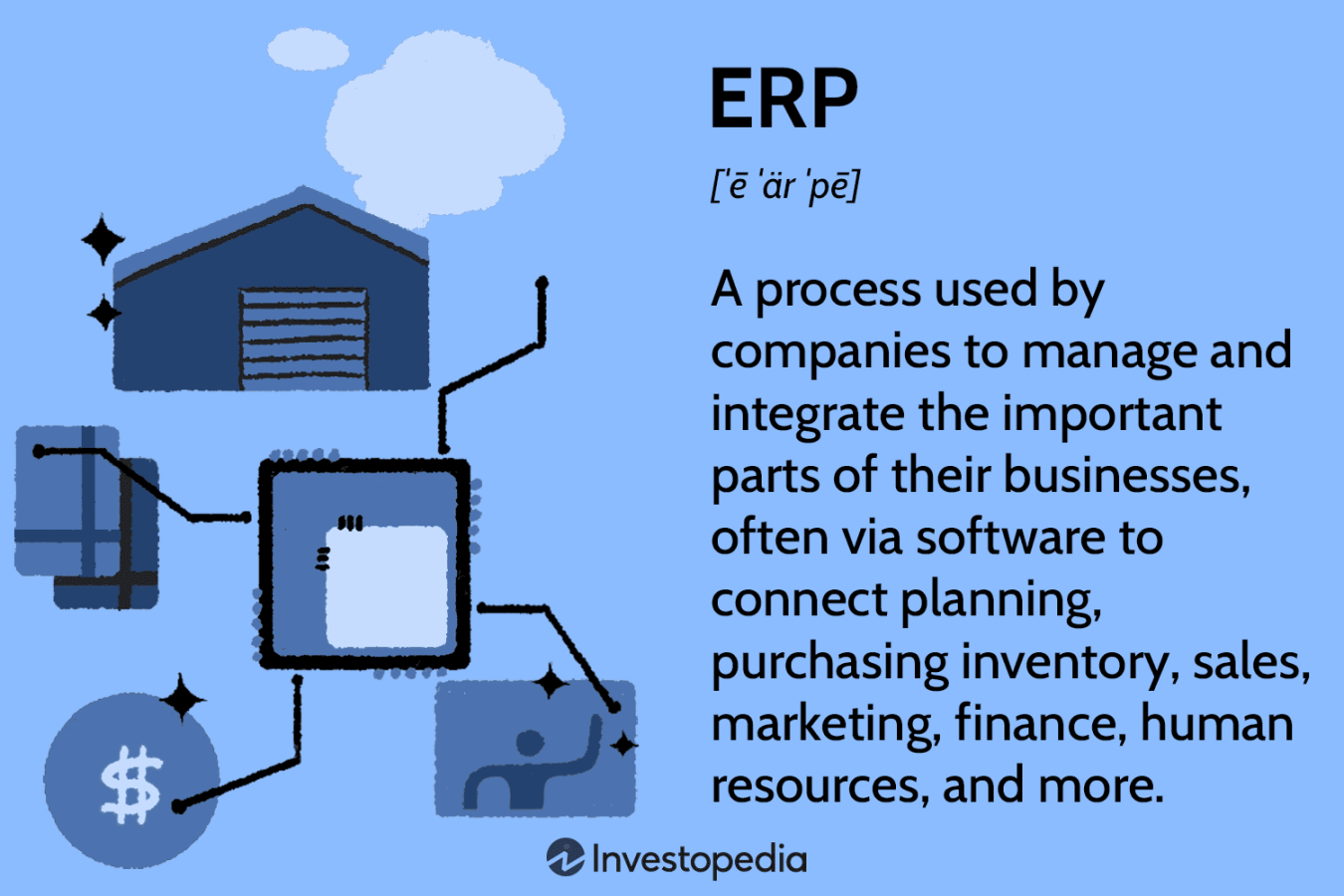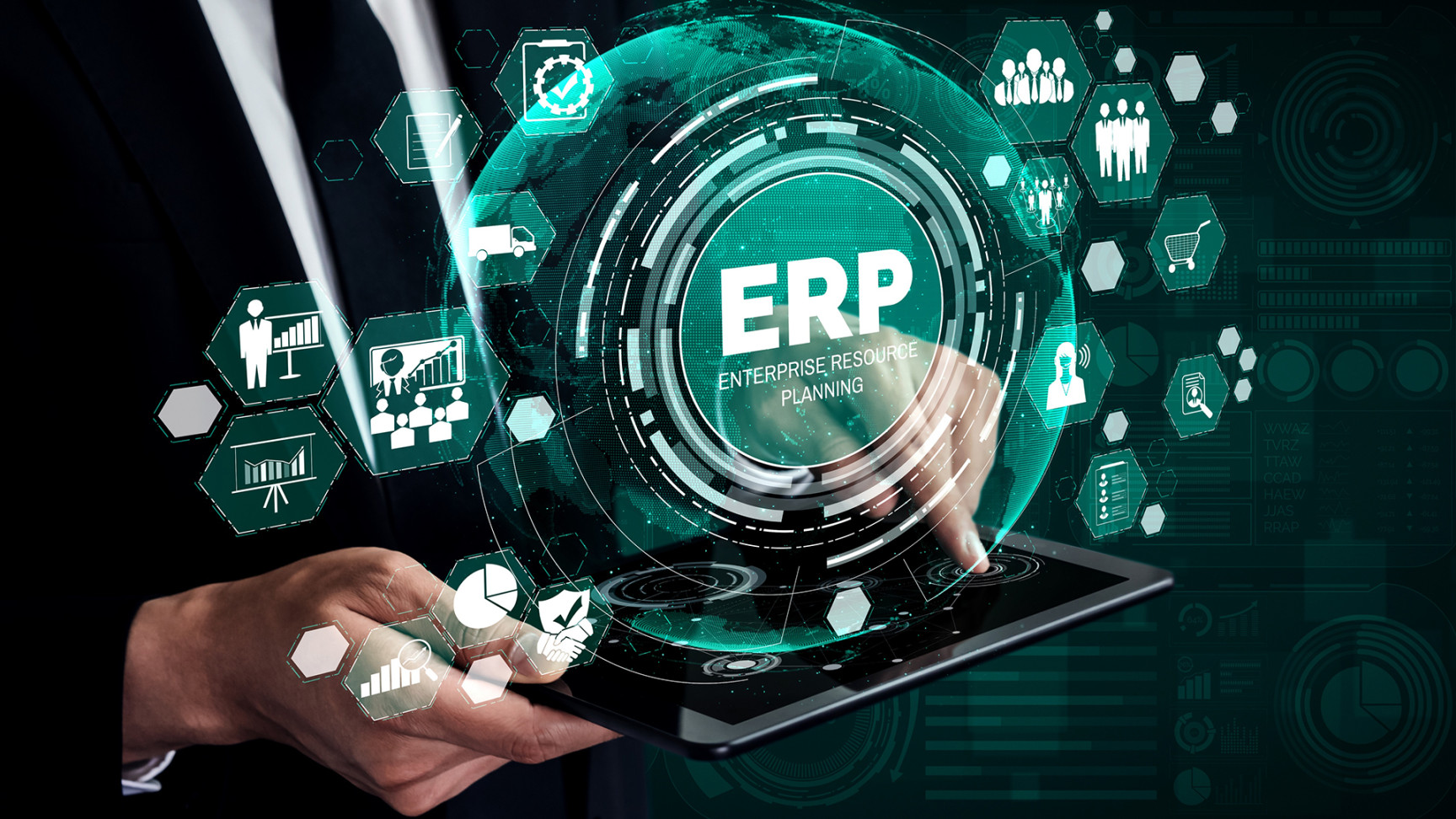Hello! Have you ever wondered how large organizations manage all their moving parts? From finance and inventory to human resources and customer relations, there’s a complex web of information to juggle. This is where ERP technology comes in.
ERP stands for Enterprise Resource Planning. It’s a comprehensive software system that integrates various business processes into a single platform. Think of it as a central nervous system for your company, streamlining information flow and boosting efficiency across departments.

Core Functions of ERP Systems
ERP systems encompass a wide range of features, but some core functionalities include:

Financial Management: Track income, expenses, budgets, and generate financial reports.
- Inventory Management: Monitor stock levels, manage orders, and optimize purchasing.
- Supply Chain Management: Oversee the flow of goods from procurement to delivery.
- Customer Relationship Management (CRM): Manage customer interactions, sales pipelines, and service requests.
- Human Resource Management (HRM): Automate payroll, track employee data, and manage benefits.
Benefits of Implementing ERP Technology
The advantages of using ERP systems are numerous. Here are some key benefits:
Improved Efficiency: Streamlined workflows and automated processes lead to significant time savings and increased productivity.
- Enhanced Data Visibility: Real-time access to accurate data across departments allows for better decision-making.
- Reduced Costs: ERP systems can help optimize inventory levels, reduce waste, and streamline operations, leading to cost savings.
- Improved Collaboration: ERP fosters better communication and collaboration between departments by providing a unified platform for information sharing.
- Enhanced Customer Service: Faster access to customer data enables businesses to respond to inquiries and resolve issues promptly.
- Improved Regulatory Compliance: ERP systems can help ensure adherence to industry regulations and reporting requirements.
Different Types of ERP Systems
There are several types of ERP systems available, each catering to different needs and company sizes. Here’s a breakdown of the most common options:
On-Premise ERP: This traditional approach involves installing and managing the ERP software on your own servers.
- Cloud-Based ERP: This model leverages a cloud provider’s infrastructure to host and manage the ERP software.
- Hybrid ERP: This combines elements of both on-premise and cloud-based ERP, offering flexibility for organizations with complex needs.
Choosing the Right ERP System
Selecting the right ERP system requires careful consideration. Here are some factors to evaluate:
Company Size and Industry: ERP systems come in various scales, from solutions designed for small businesses to those catering to large enterprises. Choose a system that aligns with your industry’s specific requirements.
- Budget: ERP systems can be a significant investment. Consider your budget and the potential return on investment (ROI) before making a decision.
- Scalability: Choose an ERP system that can grow with your business. Look for a solution that offers modular functionality and easy integration with future needs.
- Implementation Complexity: The implementation process can be time-consuming and resource-intensive. Evaluate the complexity of the system and the support offered by the vendor.
The Future of ERP Technology
ERP technology is constantly evolving. Here are some trends shaping the future of ERP:
Artificial Intelligence (AI) and Machine Learning (ML): AI and ML will play a more prominent role in ERP systems, enabling automation, predictive analytics, and intelligent decision-making.
- Cloud-Based Deployment: Cloud-based ERP adoption will continue to rise due to its scalability, affordability, and ease of access.
- Mobile Integration: Mobile access to ERP functionalities will become increasingly important for on-the-go employees and real-time data management.
- Industry-Specific Solutions: We’ll see a rise in industry-specific ERP solutions tailored to the unique needs of different sectors.
Conclusion
ERP technology is a powerful tool that can transform how businesses operate. By streamlining processes, improving data visibility, and fostering collaboration, ERP systems can give organizations a significant competitive edge. As technology continues to evolve, ERP systems will become even more sophisticated and adaptable, offering even greater benefits for businesses of all sizes.